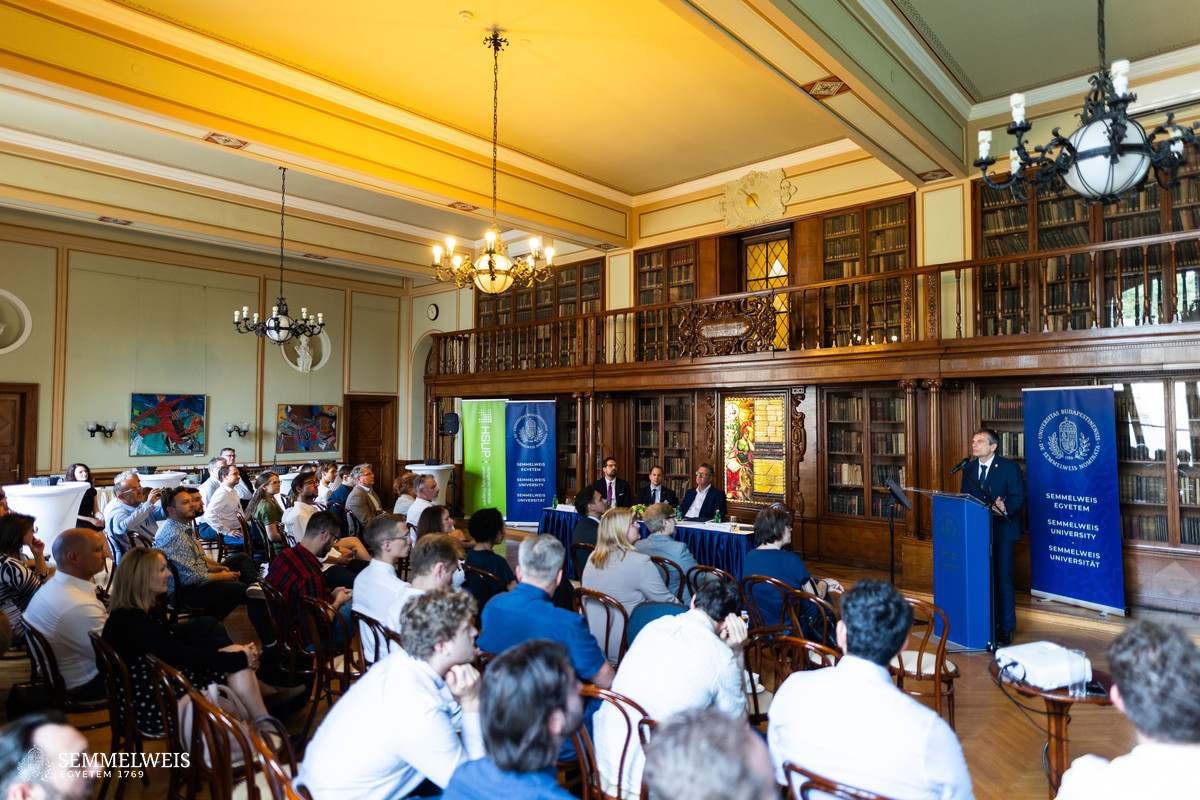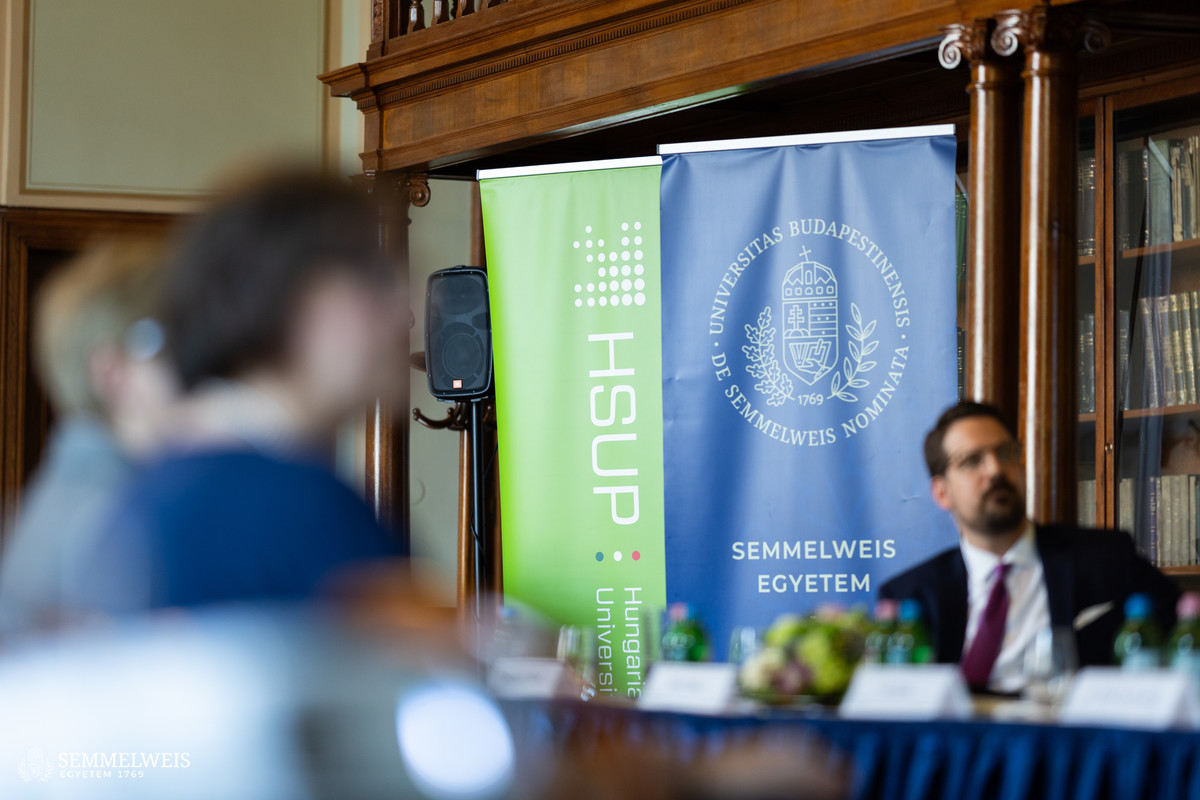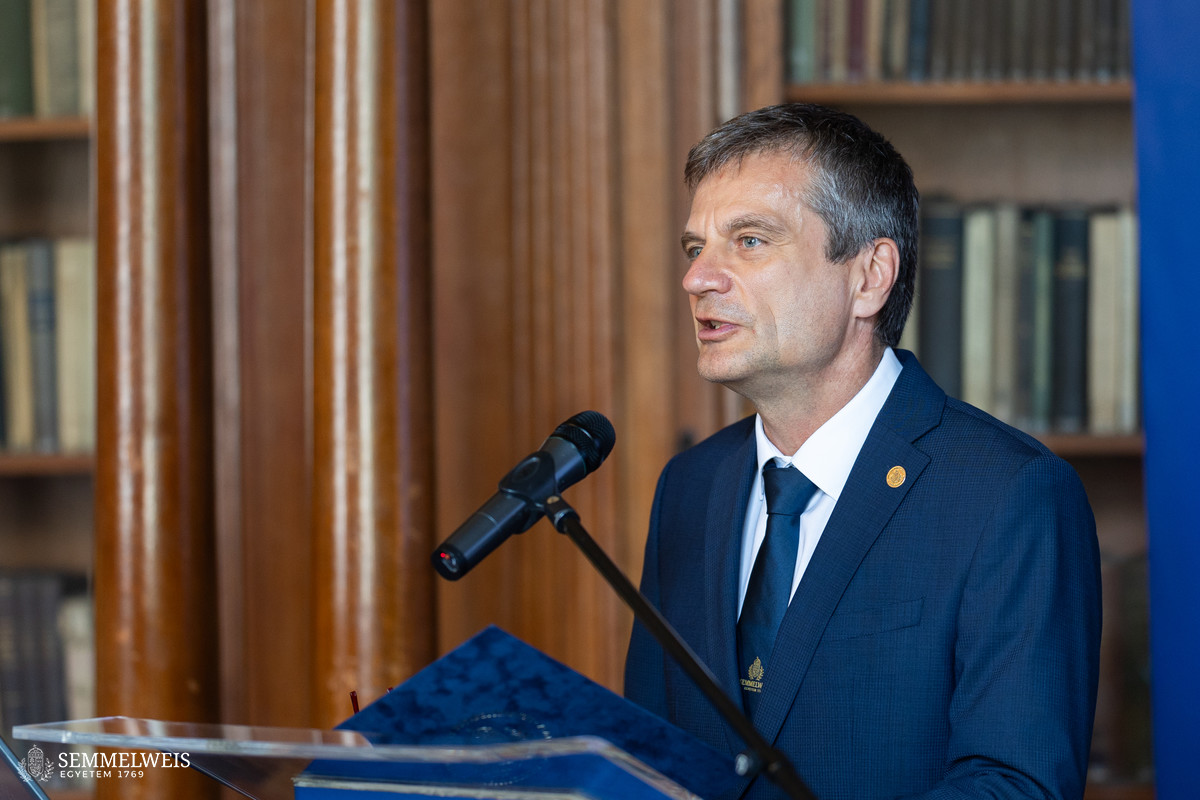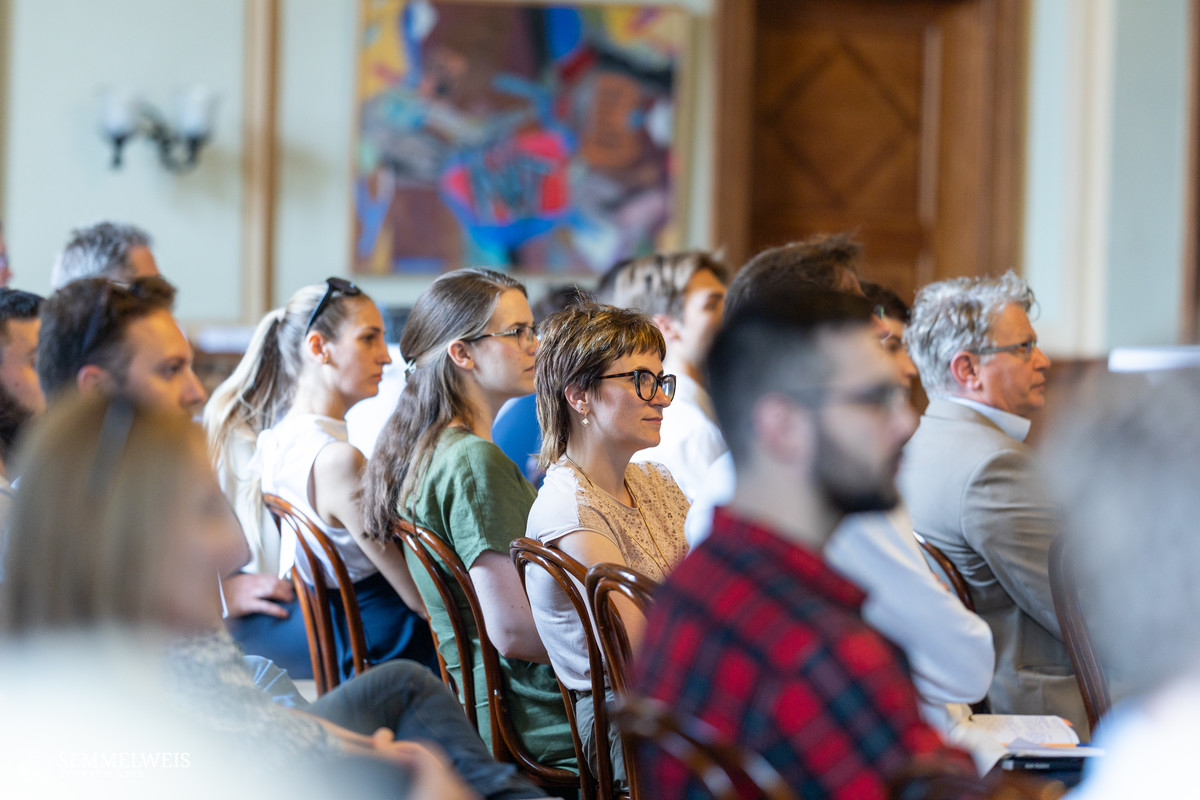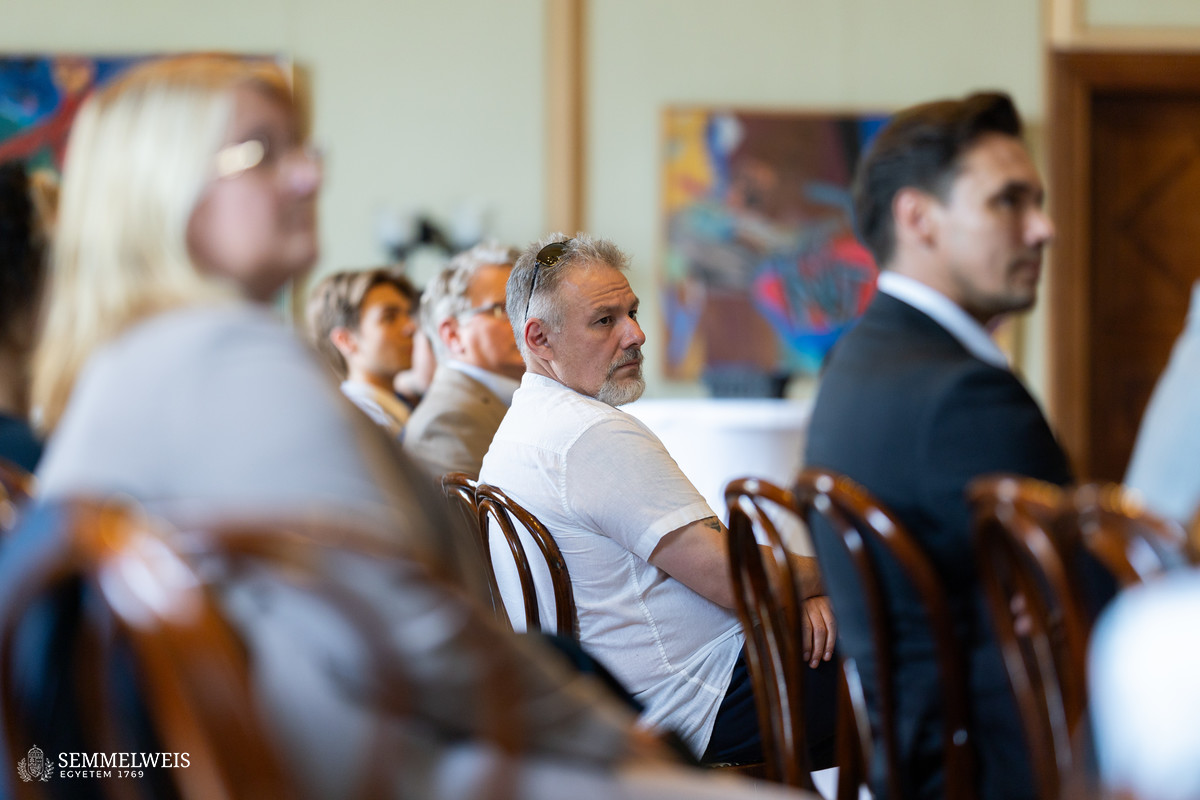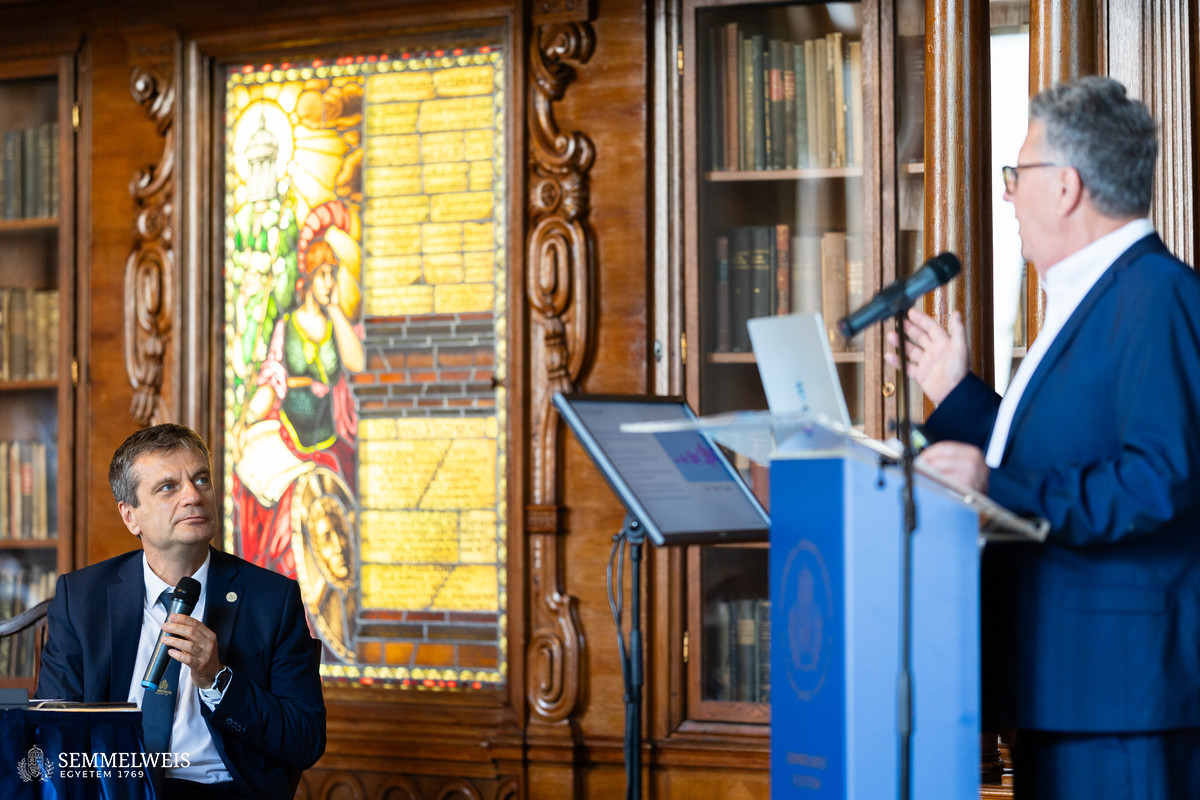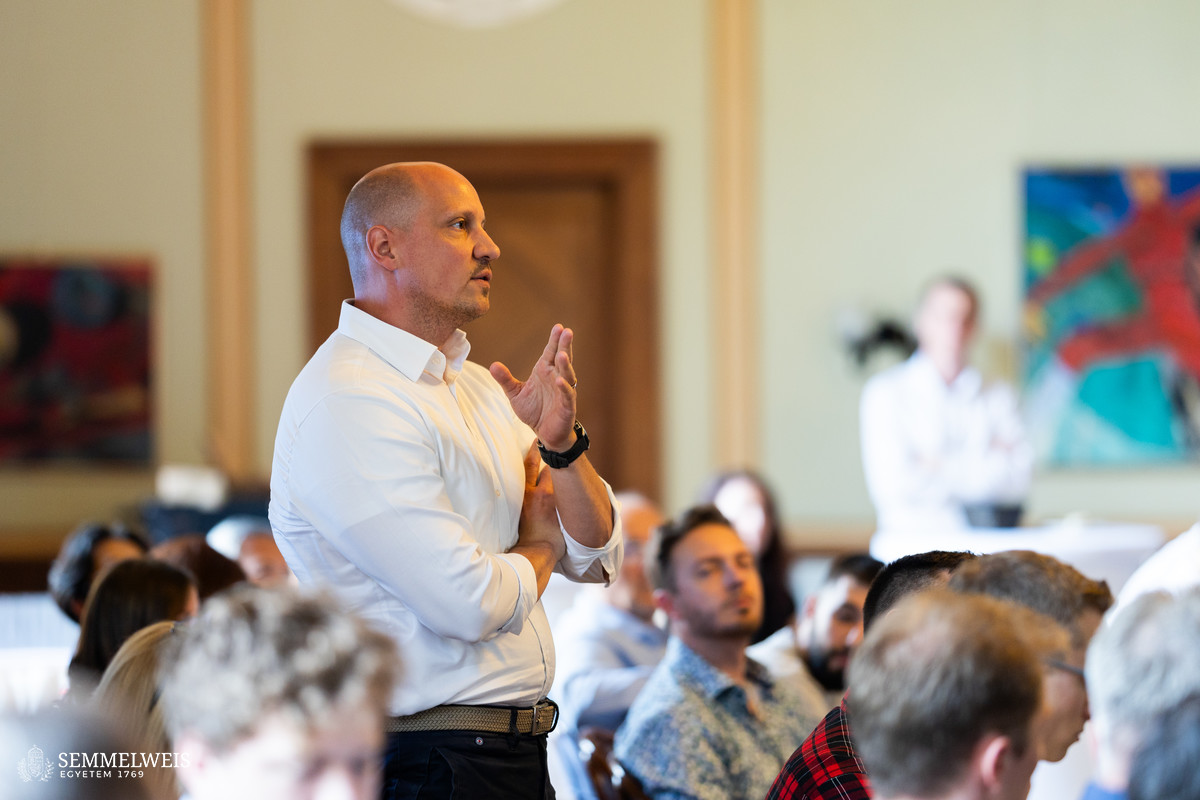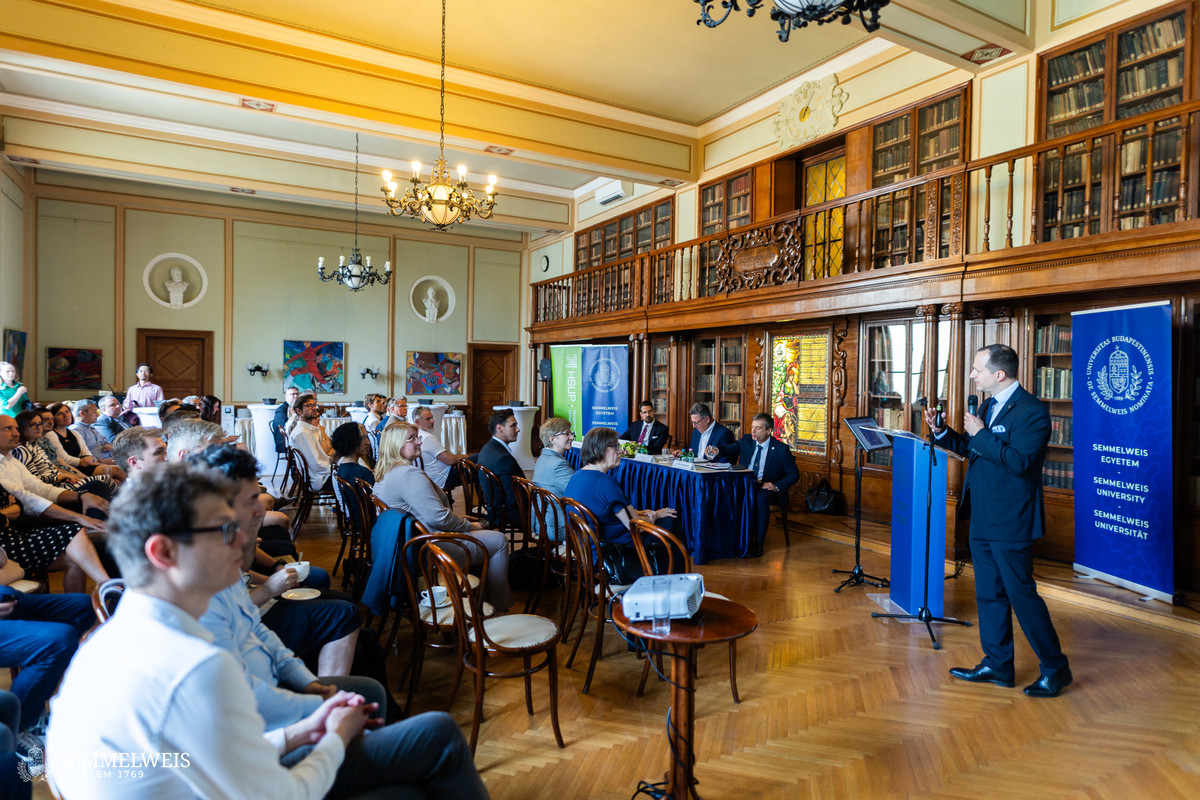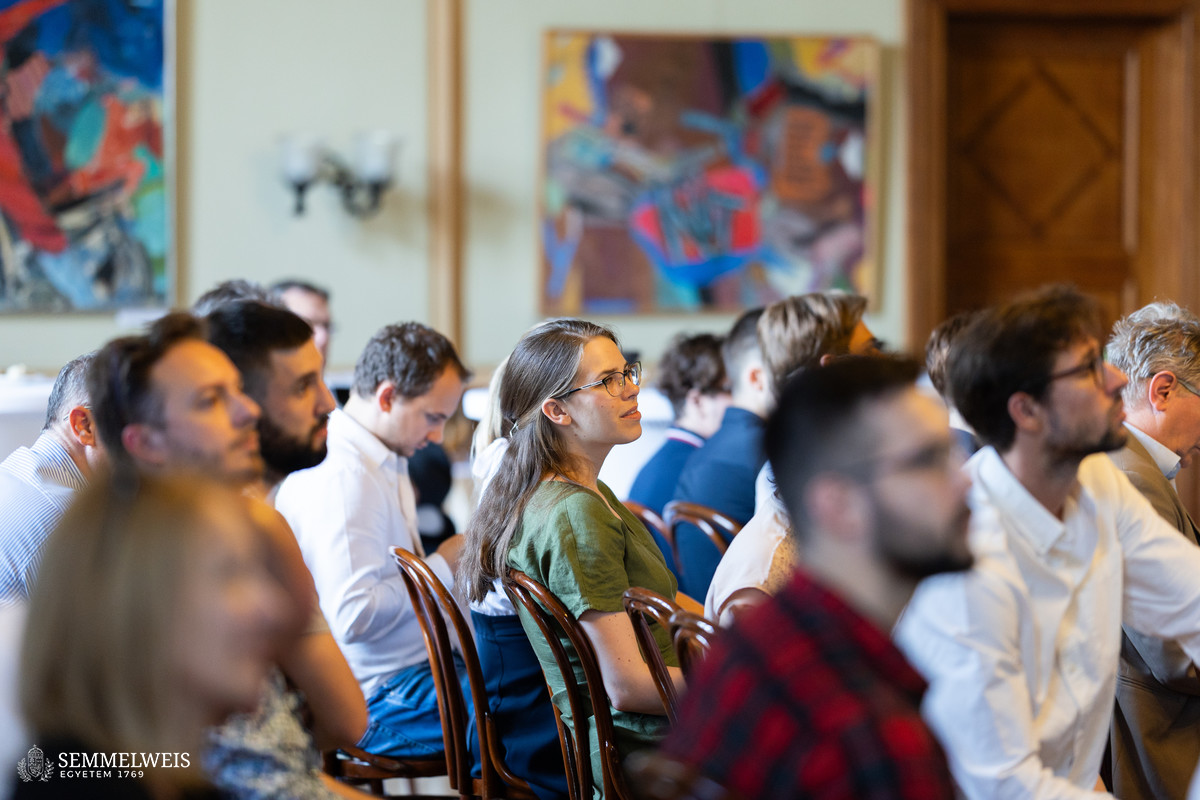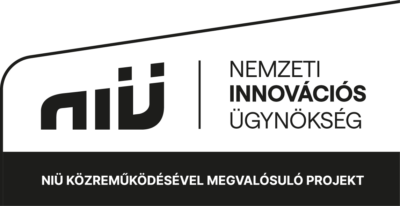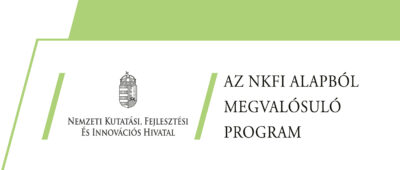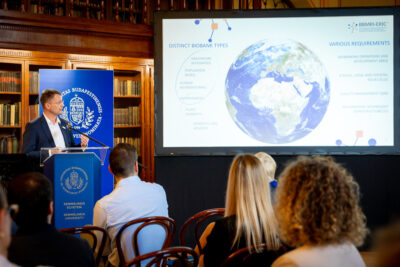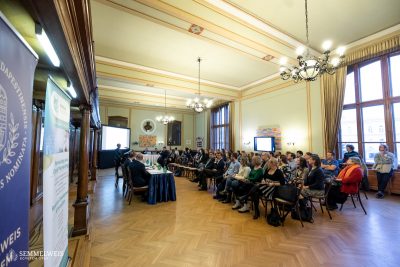Following the opening speech by Vice-Rector for Science and Innovations Dr. Péter Ferdinandy, Dr. Péter Fáykiss, Director of the Digitalization Directorate at the National Bank of Hungary, discussed the importance of capital investments in innovation-driven enterprises within Hungary’s regulatory environment. Innovation-driven enterprises are essential for central banks because they significantly contribute to economic growth and stability, he emphasized.
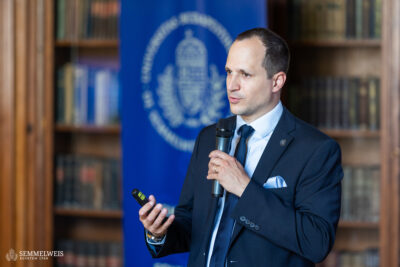 Dr. Péter Fáykiss highlighted the historical roots of venture capital and the necessity of supporting startups for exponential economic growth. “Investment in pre-seed and seed-stage startups nearly doubled between 2022 and 2023, showing a commitment to nurturing early-stage innovations,” he noted. To address funding challenges, he introduced convertible notes and SAFE (Simple Agreement for Future Equity) notes, stressing their importance for startups with uncertain valuations. He concluded by underscoring the National Bank’s initiatives to support the startup ecosystem.
Dr. Péter Fáykiss highlighted the historical roots of venture capital and the necessity of supporting startups for exponential economic growth. “Investment in pre-seed and seed-stage startups nearly doubled between 2022 and 2023, showing a commitment to nurturing early-stage innovations,” he noted. To address funding challenges, he introduced convertible notes and SAFE (Simple Agreement for Future Equity) notes, stressing their importance for startups with uncertain valuations. He concluded by underscoring the National Bank’s initiatives to support the startup ecosystem.
Carl Berke, Partner at Mass General Brigham Ventures, an inventor of six US-registered patents, a founding member of business angel organizations Angel Healthcare Investors and Mass Medical Angels, and a lecturer at MIT Sloan School of Management, delivered his keynote presentation on the venture path from invention to innovation, comparing it to the classic board game Chutes and Ladders. “It’s not for the faint-hearted. It requires a lot of luck, but as Louis Pasteur said, »chance favors the prepared mind«.” So, his goal was to encourage the audience to persevere and anticipate the issues they would encounter during this process.
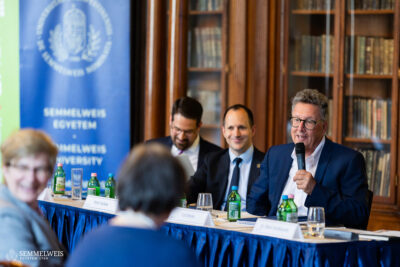 To justify his argument, he detailed the working scheme of Mass General Brigham (MGB), a not-for-profit integrated healthcare system that engages in medical research, teaching, and patient care and is considered the largest hospital-based research enterprise in the United States with its 65 startups since inception, 17 exits, and 25 active companies. Their primary mission is to improve healthcare in the form of products. The path to advance new technology from bench to bedside is commercialization, as inventions become innovations once brought to the market, Dr. Carl Berke emphasized. As he phrased it:
To justify his argument, he detailed the working scheme of Mass General Brigham (MGB), a not-for-profit integrated healthcare system that engages in medical research, teaching, and patient care and is considered the largest hospital-based research enterprise in the United States with its 65 startups since inception, 17 exits, and 25 active companies. Their primary mission is to improve healthcare in the form of products. The path to advance new technology from bench to bedside is commercialization, as inventions become innovations once brought to the market, Dr. Carl Berke emphasized. As he phrased it:
Invention is about turning money into knowledge, but innovation is about turning knowledge into money.
However, it is only companies that make products, not hospitals, he noted. Out of the more than 10,000 scientific publications annually, Mass General Brigham only invests in 4-6 qualified opportunities, and only in the early phase. As venture is a “high-risk, high-reward game,” venture funds operate on a portfolio strategy to spread risk, since only two out of ten investments yield high returns, with “winners paying for the losers.”
Strong intellectual property protection is important because if an invention is in the public domain, no one will pay for the development, as what belongs to everyone belongs to no one.
Another key strategy is to have an investor team consisting of scientists with business and legal degrees as well as industry experience, Dr. Carl Berke warned the audience. Also, MGB never invests alone but partners with other venture capital funds, „We have to manufacture our own conviction that others will follow as lemmings.” But MGB Fund also takes equity in the company, as with time, most venture startups lose focus and deviate from the original technology when it needs improvement. As a result, one way to get a return is for the institution to maintain its interest in the company that started.
Carl Berke also emphasized that customers don’t buy technology, they buy what technology does for them. He advised inventors to accept the necessity of giving up their ‘baby-invention’ for adoption to more fit parents, i.e. investors, but also suggested that inventors be involved in the life of spin-offs as professional advisors.
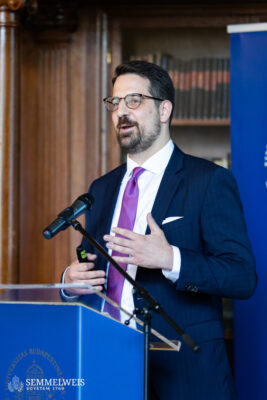 Barnabás Simon, Counsel at Bird & Bird, presented on venture capital investments and term sheet negotiations (negotiations on the terms and conditions of a potential business agreement). He explained that term sheets are the first formal document between startups and institutional investors, typically in post-pre-seed phase. Although lengthy and filled with legal jargon, they are usually non-binding. Founders should first check this non-binding status and the governing law, often favoring US or UK jurisdiction over Hungarian law. Barnabás Simon outlined the principal transaction terms, including investment amounts and capitalization tables. He highlighted key investor rights such as voting rights, dividend rights, and sales-related rights, which protect investors’ interests in high-risk ventures. He emphasized the need to understand these legal frameworks to align founder and investor interests effectively.
Barnabás Simon, Counsel at Bird & Bird, presented on venture capital investments and term sheet negotiations (negotiations on the terms and conditions of a potential business agreement). He explained that term sheets are the first formal document between startups and institutional investors, typically in post-pre-seed phase. Although lengthy and filled with legal jargon, they are usually non-binding. Founders should first check this non-binding status and the governing law, often favoring US or UK jurisdiction over Hungarian law. Barnabás Simon outlined the principal transaction terms, including investment amounts and capitalization tables. He highlighted key investor rights such as voting rights, dividend rights, and sales-related rights, which protect investors’ interests in high-risk ventures. He emphasized the need to understand these legal frameworks to align founder and investor interests effectively.
Following questions from the audience, Dr. Péter Ferdinandy, Vice-Rector for Science and Innovations, highlighted the university’s commitment to fostering entrepreneurship and announced the foundation of the Semmelweis Innovation Club.
Semmelweis Innovation Club aims to support the foundation of spin-off companies in fields such as pharmaceuticals, medical devices, nutrition, healthcare, and data science. Club members will offer mentoring in business planning, development, marketing, and management, and will also provide networking opportunities and financing support.
Dr. Péter Ferdinandy invited potential members to join the club, stressing the importance of collaboration and confidentiality, and mentioned that regular events would be organized to support the development of spin-off companies.
Dr. Balázs Csizmadia, Judit Szabados-Dőtsch
Photos by Bálint Barta – Semmelweis University
The project STARTUP-2024-HSUP-26 was implemented by the Hungarian Innovation Agency with the support of the Ministry of Culture and Innovation, with funding from the National Research, Development and Innovation Fund.
